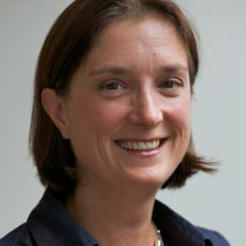A cross-sector alliance of charities has formally launched the Understanding Charities Group, aimed at improving public trust and confidence in charities.
It has also outlined four strands of work which will improve understanding of how charities work, improve the public’s trust, empathy and engagement with charities, and increase positive media coverage of the sector and better tackle the negative.
The initiative, which was previously unnamed, was created by CharityComms, NCVO and several other groups and individuals, in response to concerns that the high levels of trust enjoyed by the sector could be at risk due to a lack of understanding of modern charities and how they operate.
CharityComms told Civil Society News in September that it was convening a roundtable of communications professionals and sector bodies to agree the group's work.
The group was launched in reaction to increased scrutiny and questioning, in the media and from MPs, of charities' right to campaign, levels of chief executive pay, fundraising methods and administration costs.
The group’s steering committee includes Vicky Browning, director of the membership body CharityComms; Alan Gosschalk, director of fundraising at Scope; Joe Saxton, founder of nfpSynergy, and Karl Wilding, director of public policy at NCVO, as well as 11 communications professionals from charities and bodies including the Charity Commission.
It met for the first time last month to agree its four stands of work. These include:
- Creating a positive, proactive narrative to explain how modern charities work and why they operate the way they do
- Engaging with charities and creating ways for them to engage with their audiences
- Gaining more generic media coverage for charities, while at the same time creating a ‘media rebuttal protocol’ to help charities respond to coverage about issues such as staff salaries, fundraising methods, admin costs and government contracts.
- Researching and understanding the public, testing ideas and narratives, and measuring success.
The group said it will assess media scrutiny, including the level of coverage of different stories have received, and measure the impact of the initiative.
The group said it is hoping to develop a better system for responding to media ‘scandals’ within the next six months and a better general media profile for charities within a couple of years. But it is likely to take around ten years to make substantive changes to public attitudes.
Writing for the Charity Finance Yearbook 2015, which will be published in January, Browning says: “It’s important the sector recognises that this initiative is not about blaming the public for not understanding charities, or the media for misrepresenting us.
“For years, charities have presented a simplified version of what we do to the world, so to a large extent have contributed to this lack of public understanding.
“Neither is it a plea for special favours: the charity sector should welcome media and political scrutiny. It’s not about complacency either.
“We need to continue work to get our own house in order in terms of issues such as fundraising standards, increased impact reporting and higher levels of transparency and accountability.”
A general meeting, open to all interested parties is being held on 23 January at NCVO’s offices near Kings Cross. Email [email protected] for more details.









